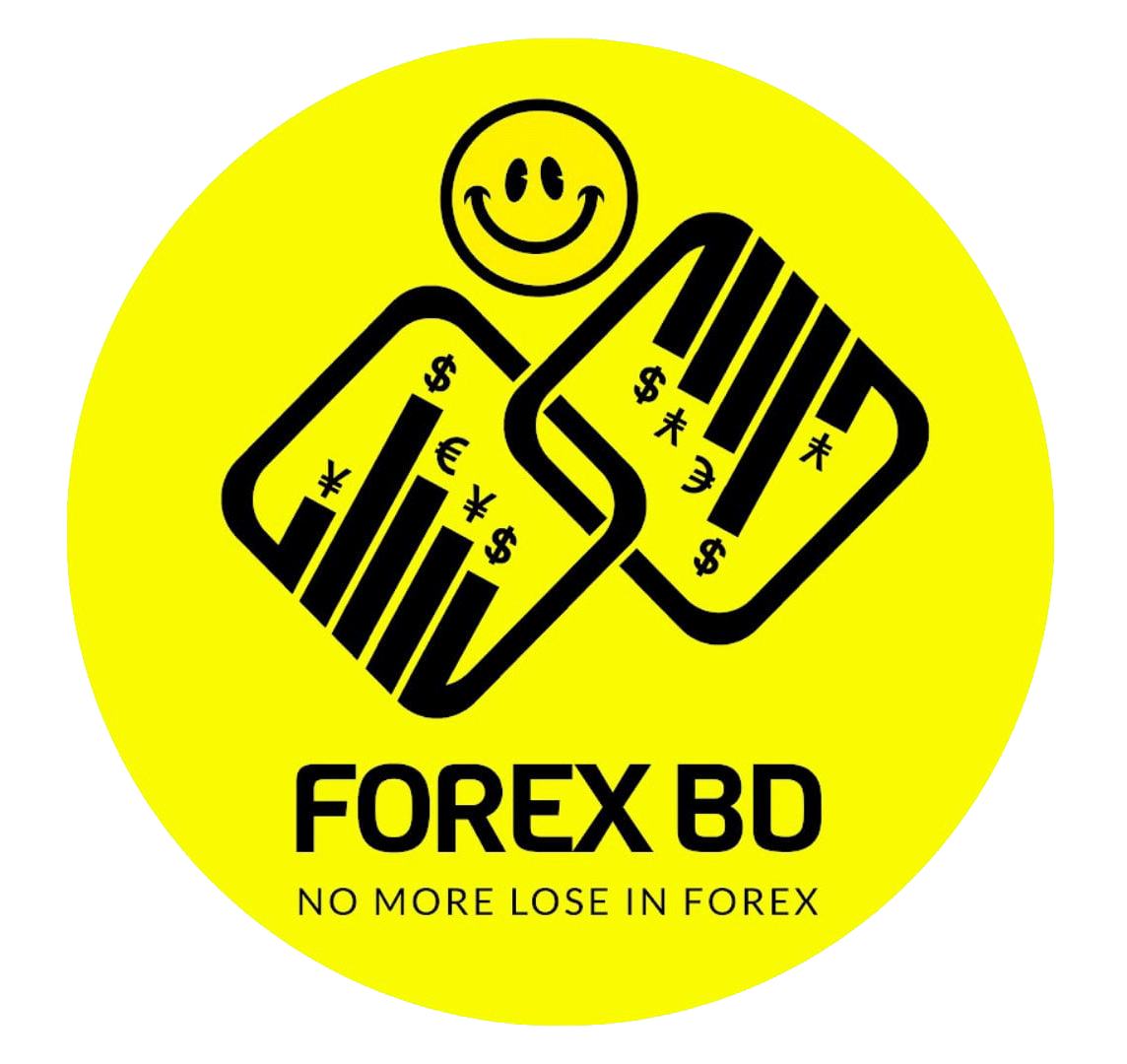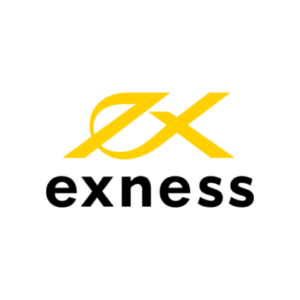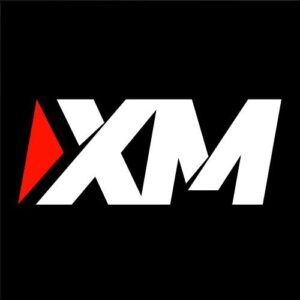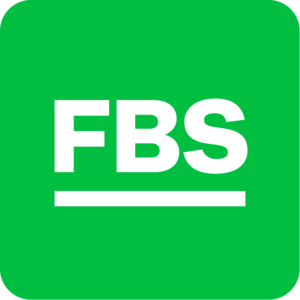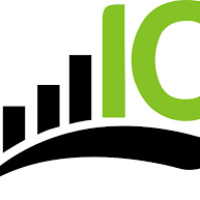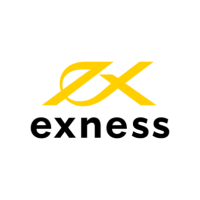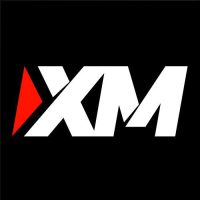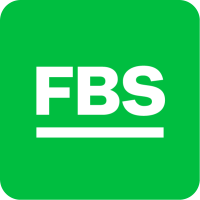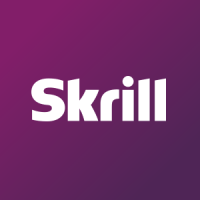If you are a forex trader, leverage is one of the key tools at your disposal to increase your potential profits. But leverage can also be a double-edged sword, amplifying your losses just as much as your gains. In this guide, we will explore everything you need to know about leverage in forex, from what it is to how to use it wisely.
Table of Contents
- What is leverage in forex?
- How does leverage work?
- The benefits of leverage in forex
- The risks of leverage in forex
- How to calculate leverage in forex
- Choosing the right leverage for your trading style
- How to manage your risk with leverage
- Tips for using leverage in forex
- Best practices for leveraging in forex
- Common misconceptions about leverage in forex
- How to avoid margin calls
- Alternatives to using leverage in forex
- Leverage in forex regulation
- Examples of leverage in forex
- Conclusion
1. What is leverage in forex?
Leverage is essentially borrowing money from your broker to increase the size of your trading position. For example, if you have a trading account with $10,000 and a leverage of 1:100, you can effectively trade with $1,000,000 (100 times your account balance).
2. How does leverage work?
Leverage works by increasing the amount of money available to trade. When you open a trade, you only need to put up a small percentage of the total value of the trade (known as the margin). The rest is provided by your broker, effectively magnifying your gains (and losses) in proportion to the leverage you have chosen.
3. The benefits of leverage in forex
The main benefit of leverage in forex is the ability to control a large amount of money with a relatively small investment. This can result in significant profits if the trade goes in your favor.
4. The risks of leverage in forex
However, leverage also increases the risk of losing money. Since you are effectively borrowing money from your broker, you will need to pay interest on any losses incurred. This can quickly add up if you are not careful.
5. How to calculate leverage in forex
Leverage is calculated by dividing the total value of your trade by the amount of margin required. For example, if you want to open a trade with a value of $100,000 and your broker requires a margin of $1,000, your leverage would be 100:1.
6. Choosing the right leverage for your trading style
Choosing the right leverage for your trading style is crucial. A high leverage ratio can result in large profits, but it can also lead to significant losses if the market moves against you. On the other hand, a low leverage ratio may limit your potential profits.
7. How to manage your risk with leverage
Managing your risk with leverage involves setting stop-loss orders to limit potential losses, as well as using risk management strategies such as hedging and diversification.
8. Tips for using leverage in forex
Some tips for using leverage in forex include starting with a small leverage ratio, avoiding trading during volatile market conditions, and monitoring your trades closely.
9. Best practices for leveraging in forex
Best practices for leveraging in forex include using leverage as a tool rather than a strategy, avoiding over-leveraging, and sticking to a trading plan.
10. Common misconceptions about leverage in forex
Common misconceptions about leverage in forex include the belief that it is a surefire way to make money and that it is only suitable for experienced traders. It is important to understand that leverage is a tool that can be used to amplify profits, but it also amplifies losses, so it should be used with caution and with proper risk management strategies in place.
11. How to avoid margin calls
Margin calls occur when the value of your trading account falls below the required margin level. To avoid margin calls, traders should monitor their account balance regularly, use stop-loss orders to limit losses, and avoid over-leveraging.
12. Alternatives to using leverage in forex
There are alternatives to using leverage in forex, such as trading with a smaller position size, using options, or investing in a managed forex fund.
13. Leverage in forex regulation
Leverage in forex is regulated by financial authorities around the world. In the US, the maximum leverage allowed for retail forex traders is 1:50, while in Europe it is 1:30.
14. Examples of leverage in forex
An example of leverage in forex would be opening a trade with a value of $100,000 with a margin requirement of $1,000 and a leverage of 100:1. This means that the trader only needs to put up $1,000 of their own money to control a position worth $100,000.
15. Conclusion
Leverage is a powerful tool that can be used to increase potential profits in forex trading, but it also increases the risk of losses. Traders should choose the right leverage for their trading style, use proper risk management strategies, and avoid over-leveraging. It is important to remember that leverage is a tool, and it should be used wisely.
FAQs
Is leverage in forex always a good thing?
Ans- No, leverage in forex can increase the potential for both profits and losses. It should be used wisely and with proper risk management strategies in place.What is the maximum leverage allowed in forex trading?
Ans- The maximum leverage allowed varies by region and is regulated by financial authorities. In the US, the maximum leverage for retail forex traders is 1:50, while in Europe it is 1:30.Can leverage in forex be used for long-term trading?
Ans- Yes, leverage in forex can be used for long-term trading, but traders should be aware of the potential risks and use proper risk management strategies.What are some risk management strategies for leverage in forex? R
Ans- Risk management strategies for leverage in forex include setting stop-loss orders, using proper position sizing, and diversifying your trades.What are some alternatives to using leverage in forex?
Ans- Alternatives to using leverage in forex include trading with a smaller position size, using options, or investing in a managed forex fund.
Name
Details
Rating
Regulation: CySEC, FCA, DFSA, FSCA, FSA, CMA
Founded: 2008
Founders: Petr Valov, Igor Lychagov
Year Founded : 2008
Deposit Methods: VISA, MasterCard, Neteller, Skrill, WM, PM, Crypto (MORE)
Leverage: 1:30 | 1:500
Regulation: CySEC, FCA, DFSA, FSCA, FSA.
Min. Deposit: 5 US$
Min. Withdraw : 5 US$
HQ: Sydney, Australia
Platforms: MT4, MT5, ctrader, web trading
Found in: January 30, 2007
Deposit Methods: Bank Wire (BankTransfer), VISA, MasterCard, Neteller, Skrill, WM, PM, Crypto
Year Founded : 2010
Cryptocurrencies:
 Yes
YesDeposit Methods: Local Deposit, Bank Wire (BankTransfer), VISA, MasterCard, Neteller, Skrill, WM, PM, Crypto, USDT
Year Founded : 2010
Cryptocurrencies: (5+) Bitcoin, Litecoin, Ethereum
Deposit Methods: Local Deposit, Bank Wire (BankTransfer), VISA, MasterCard, Neteller, Skrill, WM, PM, Crypto, USDT (MORE)
Year Founded : 2009
Cryptocurrencies:



Deposit Methods: Bank Wire (BankTransfer/SWIFT), VISA, MasterCard, Alipay, Bitcoin, Bitcoin Cash, Boleto, Ether/Ethereum, Litecoin, Local Bank Deposits, M-Pesa, Mobile Money, Monero, PerfectMoney, Ripple, WebMoney
Year Founded : 2009
Cryptocurrencies:



Deposit Methods: Local Deposit, Bank Wire (BankTransfer), VISA, MasterCard, Neteller, Skrill, WM, PM, Crypto, USDT
Year Founded : 2009
Cryptocurrencies:



Deposit Methods: Bank Wire (BankTransfer/SWIFT), VISA, MasterCard, Alipay, Bitcoin, Bitcoin Cash, Boleto, Ether/Ethereum, Litecoin, Local Bank Deposits, Mobile Money, PerfectMoney, WebMoney, USDT
Year Founded : 2011
Cryptocurrencies: (25+) Bitcoin, Litecoin, Ethereum
Deposit Methods: Bank Deposit, VISA, awepay, Bitcoin, FasaPay, Local Bank Deposits, Local Bank Transfers, Neteller, paytm, Skrill, UnionPay, USDT
Leverage: 1:20 | 1:500
Regulation: CySEC, FCA, DFSA, FSCA, FSA.
Min. Deposit: 50 US$
Min. Withdraw : 50 US$
HQ: Australia, Cyprus, and the UK.
Platforms: MT4, cTrader, web trading
EAs/Robots: ✅ Yes | News Trading: ✅ Yes | Scalping: ✅ Yes
Cryptocurrencies: 20+) Bitcoin, Litecoin, Ethereum
Deposit Methods: Local Deposit, Bank Wire (BankTransfer), VISA, MasterCard, Neteller, Skrill, Crypto. USDT
Leverage: 1:20 | 1:500
Regulation: CySEC, FCA, DFSA, FSCA, FSA.
Min. Deposit: 100 US$
Min. Withdraw : 100 US$
HQ: Cyprus, the UK, Australia, and the United States.
Platforms: MT4, cTrader, web trading
EAs/Robots: ✅ Yes | News Trading: ✅ Yes | Scalping: ✅ Yes
Cryptocurrencies: 20+) Bitcoin, Litecoin, Ethereum
Deposit Methods: Local Deposit, Bank Wire (BankTransfer), VISA, MasterCard, Neteller, Skrill, Crypto. USDT
Leverage: 1:20 | 1:500
Regulation: CySEC, FCA, DFSA, FSCA, FSA.
Min. Deposit: 50 US$
Min. Withdraw : 50 US$
HQ: Australia, Cyprus, and the UK.
Platforms: MT4, cTrader, web trading
EAs/Robots: ✅ Yes | News Trading: ✅ Yes | Scalping: ✅ Yes
Cryptocurrencies: 20+) Bitcoin, Litecoin, Ethereum
Deposit Methods: Local Deposit, Bank Wire (BankTransfer), VISA, MasterCard, Neteller, Skrill, Crypto. USDT
Year Founded : 2010
Cryptocurrencies:



Deposit Methods: Local Deposit, Bank Wire (BankTransfer), VISA, MasterCard, Neteller, Skrill, WM, PM, Crypto, USDT
A Forex broker is a financial services company that provides traders with access to the foreign exchange market. The primary function of a Forex broker is to facilitate the buying and selling of currencies by acting as an intermediary between the trader and the market ( Forex BD / BD Forex / ForexBD / ForexBDLTD / Forex bd LTD / @forexbd )..
Forex brokers offer traders a variety of services, including trading platforms, market analysis, and educational resources. They also provide access to leverage, which allows traders to control larger positions with a smaller amount of capital.
Forex brokers can operate in different ways, such as market makers, which set their own bid and ask prices and take the opposite side of their clients’ trades, or as agency brokers, which pass their clients’ orders directly to the market without any intervention.
Choosing a reliable and trustworthy Forex broker is important for traders to ensure that they receive fair and transparent pricing, access to a range of financial instruments, and adequate customer support ( Forex BD / BD Forex / ForexBD / ForexBDLTD / Forex bd LTD / @forexbd )..
Forex brokers play an important role in the foreign exchange market by providing liquidity and enabling traders to participate in the market with ease. Forex brokers offer a wide range of services and tools to traders, including:
Trading Platforms: Forex brokers provide traders with access to trading platforms that allow them to place trades, analyze the market, and manage their trading accounts.
Market Analysis: Forex brokers offer traders access to market analysis, including news, research, and economic data. This can help traders make informed decisions about when to enter or exit the market.
Educational Resources: Forex brokers often provide educational resources, such as webinars, videos, and tutorials, to help traders improve their trading skills and knowledge.
Leverage: Forex brokers offer traders access to leverage, which allows traders to control larger positions with a smaller amount of capital. However, it’s important to note that leverage can increase both potential profits and losses.
Customer Support: Forex brokers provide customer support to help traders with any questions or issues they may have ( Forex BD / BD Forex / ForexBD / ForexBDLTD / Forex bd LTD / @forexbd )..
When choosing a Forex broker, traders should consider factors such as the broker’s reputation, regulation, trading conditions, fees and commissions, and customer support. It’s important to choose a broker that is reliable, transparent, and offers competitive pricing and trading conditions.
Forex brokers provide traders with access to various types of trading platforms, each with its own unique features and advantages. Here are some of the most common types of Forex broker platforms:
MetaTrader 4 (MT4): MT4 is one of the most popular Forex trading platforms, used by millions of traders worldwide. It is known for its user-friendly interface, extensive charting tools, and support for automated trading through Expert Advisors (EAs) ( Forex BD / BD Forex / ForexBD / ForexBDLTD / Forex bd LTD / @forexbd )..
MetaTrader 5 (MT5): MT5 is the newer version of MT4 and offers additional features and improvements, such as more advanced charting tools, additional order types, and support for more financial instruments.
cTrader: cTrader is a trading platform that offers advanced charting tools, support for automated trading, and fast order execution. It is known for its user-friendly interface and customization options.
WebTrader: WebTrader is a browser-based trading platform that allows traders to access the market from any device with an internet connection. It is a popular choice for traders who prefer a simple and easy-to-use platform ( Forex BD / BD Forex / ForexBD / ForexBDLTD / Forex bd LTD / @forexbd )..
Mobile Trading Platforms: Forex brokers also offer mobile trading platforms that allow traders to access the market and manage their positions from their smartphones or tablets. These platforms typically offer a range of features, including real-time quotes, charts, and news updates.
When choosing a Forex broker platform, it’s important to consider factors such as ease of use, charting tools, order types, automated trading options, customization options, and compatibility with your trading style and strategy. Ultimately, the best platform for you will depend on your individual needs and preferences as a trader.
Forex brokers can be categorized into different types based on their business model and the services they offer to their clients. Here are some of the most common types of Forex brokers ( Forex BD / BD Forex / ForexBD / ForexBDLTD / Forex bd LTD / @forexbd ). :
Dealing Desk (DD) Brokers: Dealing Desk brokers, also known as market makers, act as counterparties to their clients’ trades. They provide liquidity to the market by taking the opposite side of their clients’ trades, and may also offer fixed spreads, guaranteed stop-loss orders, and other risk management tools.
No Dealing Desk (NDD) Brokers: No Dealing Desk brokers do not act as counterparties to their clients’ trades, but instead route their orders directly to liquidity providers, such as banks, financial institutions, and other brokers. NDD brokers typically offer variable spreads and faster order execution speeds than DD brokers.
Electronic Communication Network (ECN) Brokers: ECN brokers are similar to NDD brokers, but instead of routing orders to a single liquidity provider, they connect their clients to a network of liquidity providers, which compete to offer the best bid and ask prices. ECN brokers typically charge a commission for their services, but offer some of the tightest spreads and fastest order execution speeds in the market.
Straight Through Processing (STP) Brokers: STP brokers are similar to NDD brokers, but instead of routing orders directly to liquidity providers, they use automated systems to execute orders based on pre-defined trading rules. STP brokers may offer variable or fixed spreads, and may charge a commission or markup on their services.
Hybrid Brokers: Hybrid brokers combine elements of different business models, such as acting as both a market maker and an ECN broker, or offering both fixed and variable spreads. Hybrid brokers may offer a range of services and account types to meet the needs of different types of traders.
When choosing a Forex broker, it’s important to consider the broker’s business model and the services they offer, as well as their reputation, regulation, and customer support. The best broker for you will depend on your individual needs and trading style, as well as the trading conditions and fees offered by the broker.
Forex trading is a popular financial activity that involves buying and selling currencies to profit from the fluctuations in exchange rates. As with any financial activity, it is essential to choose a reputable and regulated broker to ensure the safety of your funds and a fair trading environment. In this article, we will discuss some of the top regulated forex broker houses.
Online forex trading payment methods refer to the various payment options available for forex traders to deposit or withdraw funds from their trading accounts. In the world of forex trading, payment methods play a vital role in facilitating smooth transactions, and it is important to choose a secure and reliable payment method that suits your needs.
Like, Share & Subscribe to Our Official Sites
Contact with Us :
Copyright © 2023 Forex BD
Risk Warning: Trading on financial markets carries risks. Contracts for Difference (‘CFDs’) are complex financial products that are traded on margin. Trading CFDs carries a high level of risk since leverage can work both to your advantage and disadvantage. As a result, CFDs may not be suitable for all investors because you may lose all your invested capital. You should not risk more than you are prepared to lose. Before deciding to trade, you need to ensure that you understand the risks involved and take into account your investment objectives and level of experience.
Disclaimer : Forexbd.ltd is not encouraging anyone to do forex/stock trading, as there are investments and financial risks involved. ForexBD channel or videos are educational and informative. Before deciding to invest in the forex market, you should carefully consider your investment objectives, level of experience, and risk appetite.
#ForexTrading #ForexMarket #ForexBroker #ForexSignals #ForexAnalysis #ForexEducation #ForexPlatform #ForexTools #ForexStrategy #ForexTradingTips #ForexInvesting #ForexNews #CurrencyTrading #OnlineTrading #TradingSoftware #TechnicalAnalysis #FundamentalAnalysis #RiskManagement #MarketResearch #TradingCommunity #ForexTradingSignals #ForexTradingSystem #ForexMarketAnalysis #ForexMarketNews #ForexMarketResearch #ForexTradingStrategies #ForexTrader #ForexTradingSoftware #ForexTradingCourse #ForexTradingForBeginners #ForexTradingPlatform #ForexTradingEducation #ForexTradingAcademy #ForexTradingOnline #ForexTradingCommunity #ForexTradingCharts #ForexTradingIndicators #ForexTradingAccount #ForexTradingCoach #ForexTradingRobot
